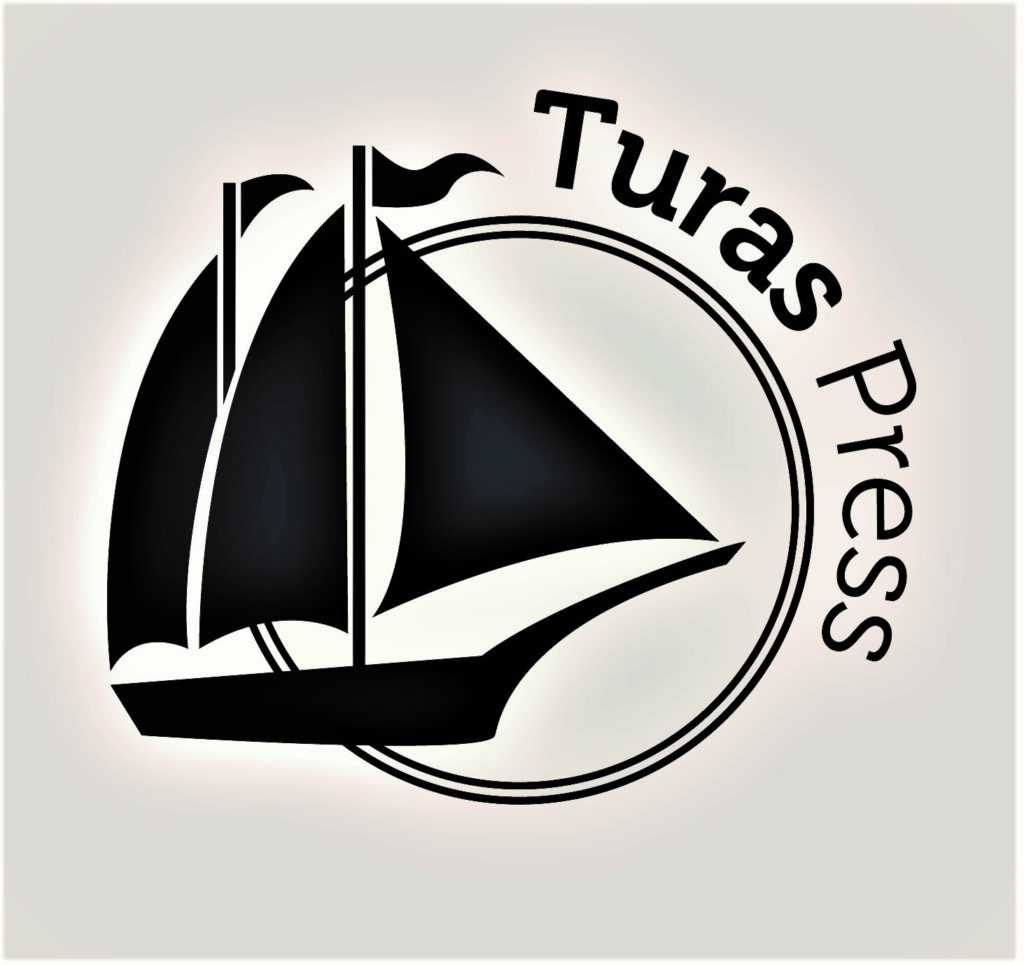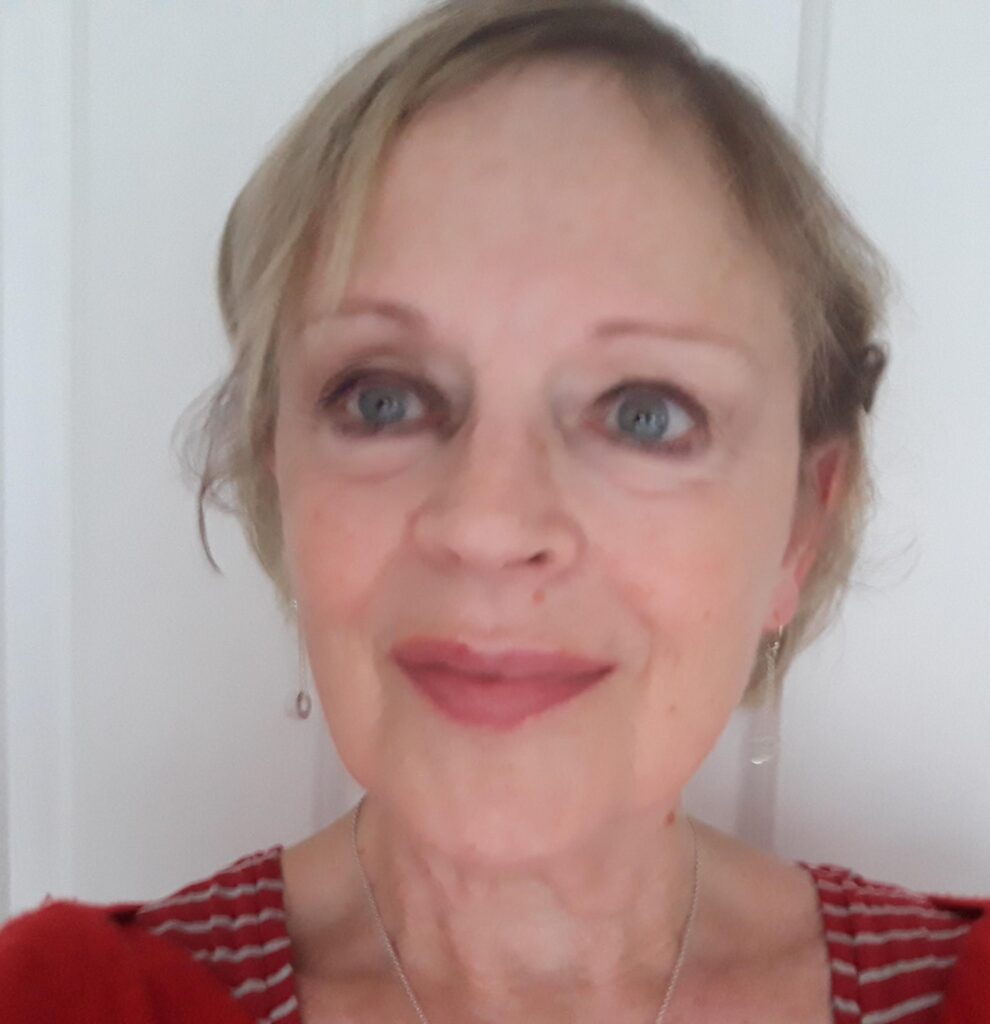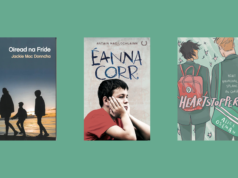
by Liz McSkeane
In Irish and in Scottish Gaelic, turas means journey
Just over four years ago, in January 2017, I embarked on the exciting and daunting journey of setting up my own small publishing house.
At first, I intended to publish only my own work. My third collection of poetry, So Long, Calypso, had been scheduled for publication by Seven Towers Press in 2014. After the tragic death of the Seven Towers director, my friend and publisher Sarah Lundberg, I put the book aside and for the next couple of years hardly had the heart to look at it, let alone seek another publisher. I resolved to forget about it. But as time passed, I started to feel that I should bring it to fruition, in recognition of my own work on the book and Sarah’s confidence in it. I decided to publish it myself.
The moment I held the sample copy of Calypso in my hand, I knew that I wanted to do more of this, and not just for my own books. There is something magical in seeing those loose pages of text gradually take shape as a whole book. Since then, I have had the privilege of bringing out 13 titles, two of my own, by 11 writers, including myself. Three more books are scheduled to come out in 2021.
As Turas Press started, and indeed continues, as a platform for my own work, I have thought a lot about the pros and cons of self-publishing. I admit I embarked on this journey with a certain hesitation, especially when it came to my historical novel, Canticle, which was one of the 2016 Irish Writers’ Centre Novel Fair winners. Having submitted Canticle to many agents and publishers without success, I eventually decided to bring it out myself under the Turas Press banner. Yet the perceived stigma often attached to self-publishing gave me pause. After all, if a book is good enough, a mainstream publisher or agent would have picked it up. Wouldn’t they?
Well, perhaps. Still, I reminded myself, many acclaimed writers started out by publishing their own books. Joyce. Proust. Balzac. Woolf. Roddy Doyle. And so on.
Reading the submissions that come in to Turas Press has convinced me that there are many really excellent books out there that never find a home. The most obvious reason is the volume of writing being produced – much of it very good writing – relative to the number of publication opportunities. Yet this does not explain why one book is accepted by prestigious agents and publishers and another isn’t.

One of the most significant elements of literary success – perhaps of all success – is serendipity: being in the right place at the right time. In a literary context, this could mean somehow crossing paths with the person who falls in love with your book, submitting a book about an event or issue that unexpectedly becomes topical, or any number of other, random examples of good fortune. Call it the lucky break.
We hear of many literary success stories, and it’s heartening to see that many of those in recent years are from acclaimed Irish writers. Even so, compared to the number of people writing and the volume of books being produced, such successes – the best seller, the lucrative deal, the movie – are outliers. The vast majority of our books won’t be best sellers. A lot of them won’t even be published.
Does this mean they’re no good? In some cases, it does. Many will be rejected for good reasons. Others? Well, maybe there are good books whose elusive lucky break never quite materialised. If so, then self-publishing might be a productive way of making your own luck.
This raises some of the big questions at the heart of writing and publishing: what is a ‘good’ book? What do we mean by ‘quality’, and who gets to define it? On what basis are certain books chosen for publication and others aren’t? These are topics which are too complex and nuanced to explore here in broad terms (though I would love to delve into them elsewhere). But in this context, they are also relevant to individual writers who may be contemplating publishing their own work, who might start their journey with one fundamental question: does my book deserve the reader’s time and attention?
Some critics may think that self-published writers never ask themselves this question. There is no doubt that the technological advances which have given us ebooks and low-cost digital printing have democratised book production to the extent that anyone who thinks they ‘have a book in them’ can attain the status of ‘author’ unencumbered by the judgments of pesky editors who might tell them that their manuscript needs more work. Without the external validation (or rejection), from the arbiters who ensure standards of quality, it may be tempting to dismiss self-published work as trivial, self-indulgent or simply no good.
However, the absence of this stamp of approval from a publisher or editor, does not mean that there are no arbiters at work at all. Writers who seriously interrogate their claim on the reader’s time and attention do seek independent advice. This may take the form of feedback from peers, from workshops and courses, from readers, and often from professional editors. Some self-published books are sent out into the world without the benefit of rigorous scrutiny, but that doesn’t mean that all of them are.
Conversely, the stamp of approval from a prestigious publisher is no guarantee of quality. I imagine that most of us have occasionally wondered how Book X could ever have been accepted by Big Publisher Y.
This brings me to one of the joys of making the transition from self-publishing into publishing of the work of other writers: the privilege of discovering a writer’s work, and playing a part in bringing it into the world.
One of the strengths of small, independent publishers is having the flexibility to provide a platform for work that may not conform to the tried and tested formulae that the bigger publishers often (though not always) prefer. Sometimes, this platform can be a launching pad: in recent times, some daring or quirky books originally brought out by independent publishers have been picked up later and taken on by bigger companies. I believe that in an era of creeping homogeneity, the smaller, independent publishers have an important role to play in spotting talent and taking risks on unusual work that might otherwise be overlooked.
Independent publishers face particular challenges. As every writer knows, the production of a book is just the beginning. What comes next – distribution, getting the book into bookstores, reviews, invitations to participate in interviews and festivals – influences not only the volume of sales, but is also recognition for the writer.
This is a hard nut to crack, as we are competing with companies that have large budgets and in some cases entire marketing departments dedicated to promoting their writers. Negotiating this terrain takes perseverance, and time. I am optimistic, though. Most Turas Press books have been reviewed in reputable places, and I believe that with tenacity, and the support of publications who are committed to widening representation in their pages, this can only improve.
With an eye to the future, it is worth mentioning the enormous potential for digital strategies to complement, and perhaps compensate for, those obstacles in distribution and marketing. I decided early on that Turas Press would produce print books, at least to start with – because I am old-fashioned and wanted the feel of a book in my hand that would go on the shelves of a physical bookstore. Now, though, most Turas Press publications are available on one e-platform, with work on a second e-format currently in progress. I am excited by the broad accessibility of e-books, and especially, by the potential for marketing and distribution solutions which digital marketing tools and strategies offer. These provide huge opportunities for promotion and publicity, both for e-books and print books. That said, maximising the potential of these digital tools and platforms takes time, energy and – if you are doing most things yourself – expertise.
In my short experience as an independent publisher, this exciting journey so far has been challenging, a great catalyst for learning new skills, and hugely rewarding. I have become accustomed to the idea that there will always be more to do and to learn – and that the destination is the journey itself.
Find out more about Turas Press here
info@turaspress.ie @TurasPress
Learning to Tango Release: April, 2021
Poetry ISBN 978-1-913598-18-1
Learning to Tango is an exuberant, playful, sometimes intense reflection on navigating the challenges of movement, the dynamics of the dance-floor and the world beyond it. These poems invite the reader on a tantalising journey to share the joys and pitfalls of communication, yearning, and the politics of belonging and desire.
In The Dark Anamaría Crowe Serrano Release: May 2021
Fiction ISBN 978-1-913598-16-7
Teruel, north-east Spain, winter, 1937. The civil war is raging, pitting neighbour against neighbour. Franco’s Nationalist rebels have surrounded the devastated, Republican-held city. This is the story of a house, of the people who take refuge there – and a dangerous secret within. María and her sister Julita, mourn their lost loved ones and try to bury their differences. But only one person knows the secret of the house, hidden deep in the dark – a deserter from the conflict, a soldier who has dared to leave the fighting – and the woman who dares to protect him.
Plain Ross Hattaway Release: June 2021
Poetry ISBN 978-1-913598-20-4
Hattaway’s signature pared-back style reveals the starkness at the heart of life experiences – family connections, expectations, disappointment, grief. The detached voice, which now teases the reader with deadpan wit, now teeters cheerfully on the abyss, unflinchingly muses upon the‘ sadness/at the heart of things’ yet emerges resilient, resisting – surviving.











